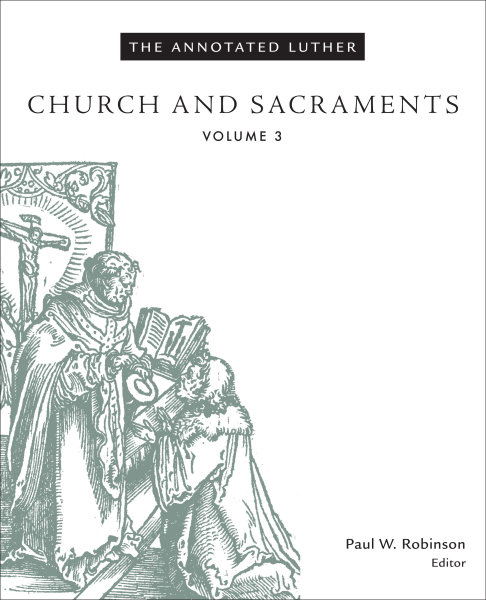Endorsements
Series endorsements
"The Annotated Luther series represents a finely crafted synthesis between readable primary texts and some of the best secondary scholarship. A superb editorial team, under the leadership of Hillerbrand, Stjerna, and Wengert, has made seventy-five selections, ranging from major treatises to sermons and letters, and beautifully laid these out in six volumes, together with state-of-the-art analyses and explanatory notes. Luther the theologian, the biblical interpreter, the pastor, the social/political thinker—all are given their due, and the resulting multidimensional portrait combines balance with a newly sharpened focus. In sum, a signal achievement."
Denis R. Janz
Loyola University New Orleans
"The Annotated Luther series provides a very welcome resource for meeting Luther again in the contemporary world. With language refreshed for our time, we can see more clearly Luther as a man who is actively grappling with a society undergoing dramatic challenges economically, religiously, and socially. By providing skilled commentary from scholars around the world and from diverse theological perspectives, this work will be of great help for modern Christians seeking to adapt and extend the insights from the Reformation to modern challenges."
Maria E. Erling
Lutheran Theological Seminary at Gettysburg
"As no other comparable series, The Annotated Luther provides the reader, whether lay or ordained, with a collection of the Wittenberg reformer's most important writings that is at once learned and highly accessible. Here Luther's works are presented in up-to-date translation with helpful introductions, explanatory notes, and engaging images. A must for the student and scholar of Luther alike!"
Ronald K. Rittgers
Valparaiso University
"This exciting Annotated Luther series from Fortress Press comes out at a very important moment. Lutherans worldwide anticipate the commemoration of five hundred years of the reformation in 2017. I just came from a conference of Asian Lutheran theologians where various Luther reception processes have been established to cater for Sunday school children to seminary professors. In many parts of the global south where the churches are growing, there is growing desire to encounter the reformer in as direct ways as is possible. The Annotated Luther series will facilitate easy access to Luther, especially for those who could not do so in the German or Latin. This will be a great resource likely to be translated into many vernacular languages."
Kenneth Mtata
The Lutheran World Federation
